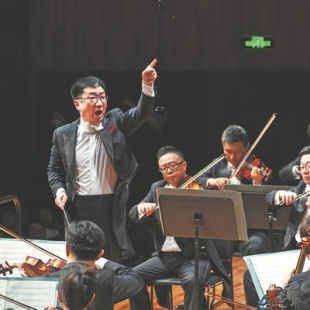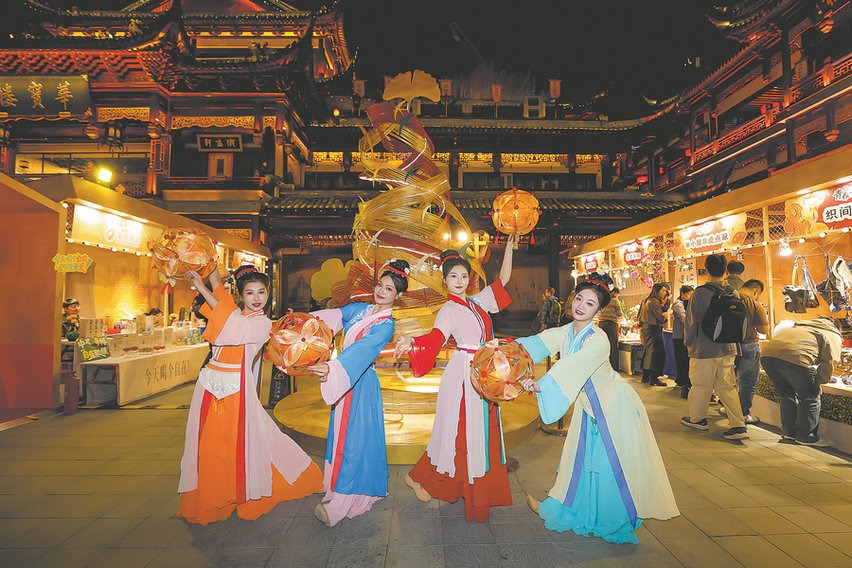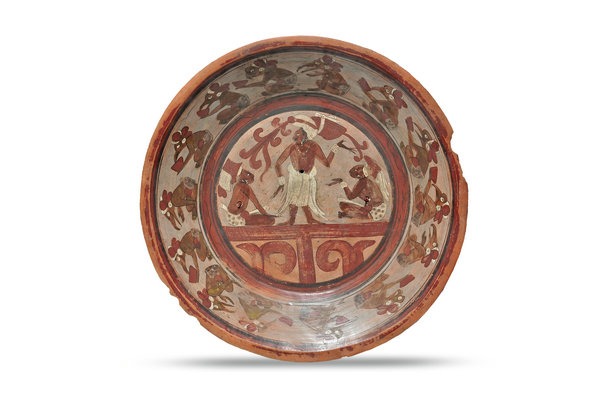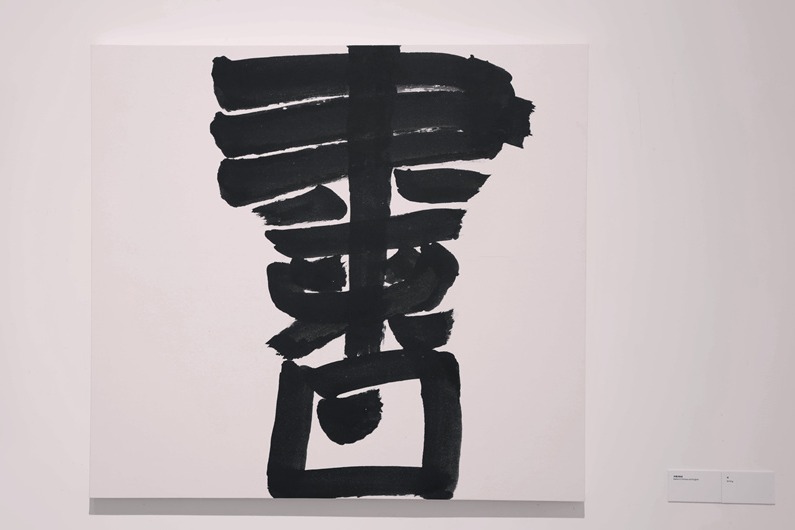Making classical music his mission

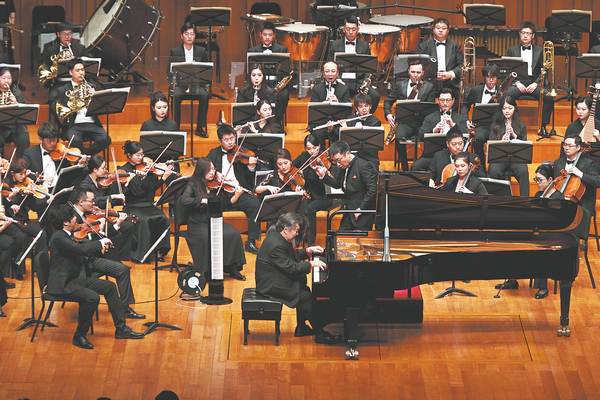
That spirit was alive again at the National Centre for the Performing Arts in Beijing on April 29. Li led an orchestra comprising students from 11 of China's top conservatories. The program included two monumental pieces: the Yellow River Piano Concerto and Shostakovich's Symphony No 7 in C Major, Leningrad.
With this year marking the 80th anniversary of the victory of the Chinese People's War of Resistance Against Japanese Aggression and the 80th anniversary of the victory of the World Anti-Fascist War, two widely beloved pieces, The Yellow River Cantata and the Yellow River Piano Concerto, have returned to stages around the country with striking frequency.
The concert opened with the iconic Yellow River Piano Concerto, a piece that has long symbolized Chinese resilience. Originating in Xian's original cantata, the concerto was co-adapted in the late 1960s by pianist Yin Chengzong.
By blending it with folk melodies, revolutionary passion, and Western classical form, Yin transformed collective memories into sound.
Now 84, Yin performed his composition at the concert. He says it's a piece he has played more times than he can count. For him, it is not merely a patriotic anthem, but a vessel of memory, hope and national pride.
"It speaks to the past," says Yin.
"But its spirit also writes the present and the future. As long as I'm alive, I'll keep pushing forward. I want to keep refining the music — to make it even more perfect."
For Li, one moment from the evening remains especially vivid: watching Yin make his way onstage — not with the upright gait of youth, but with quiet determination and undiminished purpose.
"He used to walk onstage with his head held high," Li says.
"Now, time has slowed his steps. His back is bent, his hands tremble, and he uses a walker backstage. But once that stage door opens, he removes his back brace, touches the piano keys, and suddenly, every note of the concerto returns to him, clear and alive."
Yin's connection to The Yellow River Cantata runs deep. Born in 1941 in Xiamen, Fujian province, he first heard it at the age of 9, huddled with his siblings around a radio. The sweeping melodies and patriotic fervor made a lasting impression.
A decade later, he studied piano at the Leningrad Conservatory, beginning a lifelong journey of bridging China and the West through music.
Reflecting on the enduring resonance of both the cantata and the concerto, Li says: "The significance of a classic lies in its enduring vitality when it is brought to life in any era."
Contact the writer at chennan@chinadaily.com.cn


